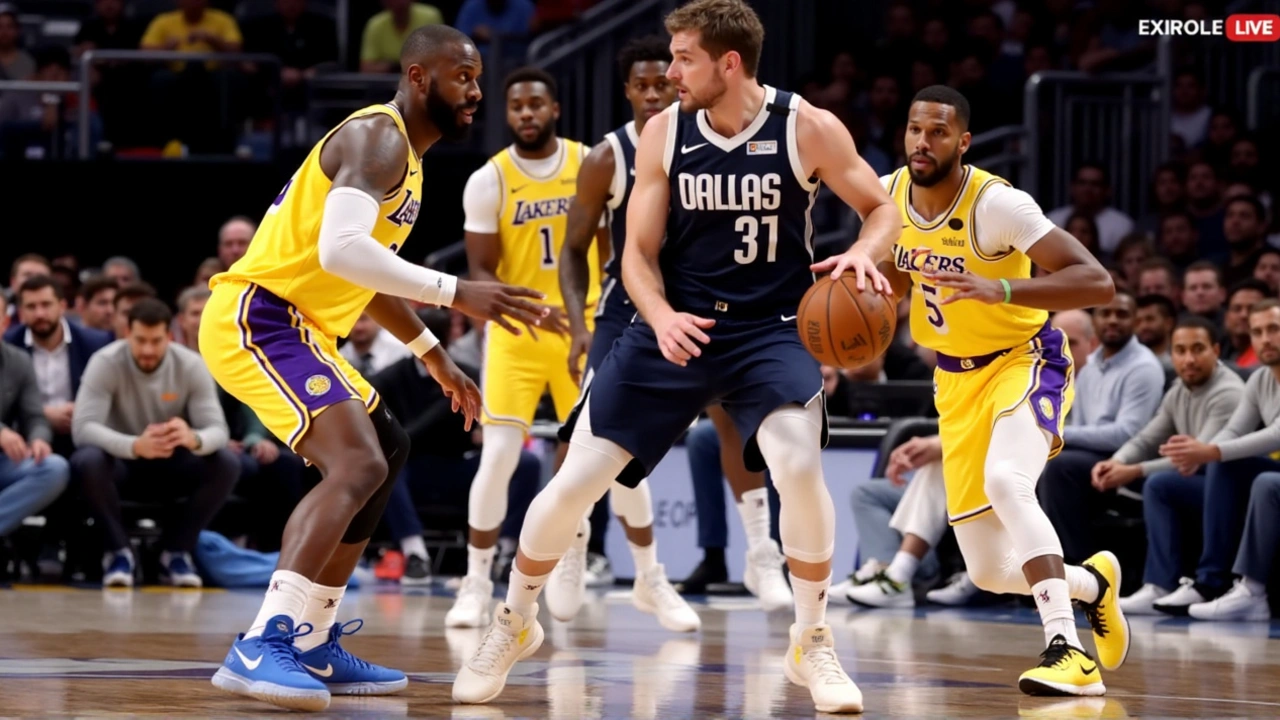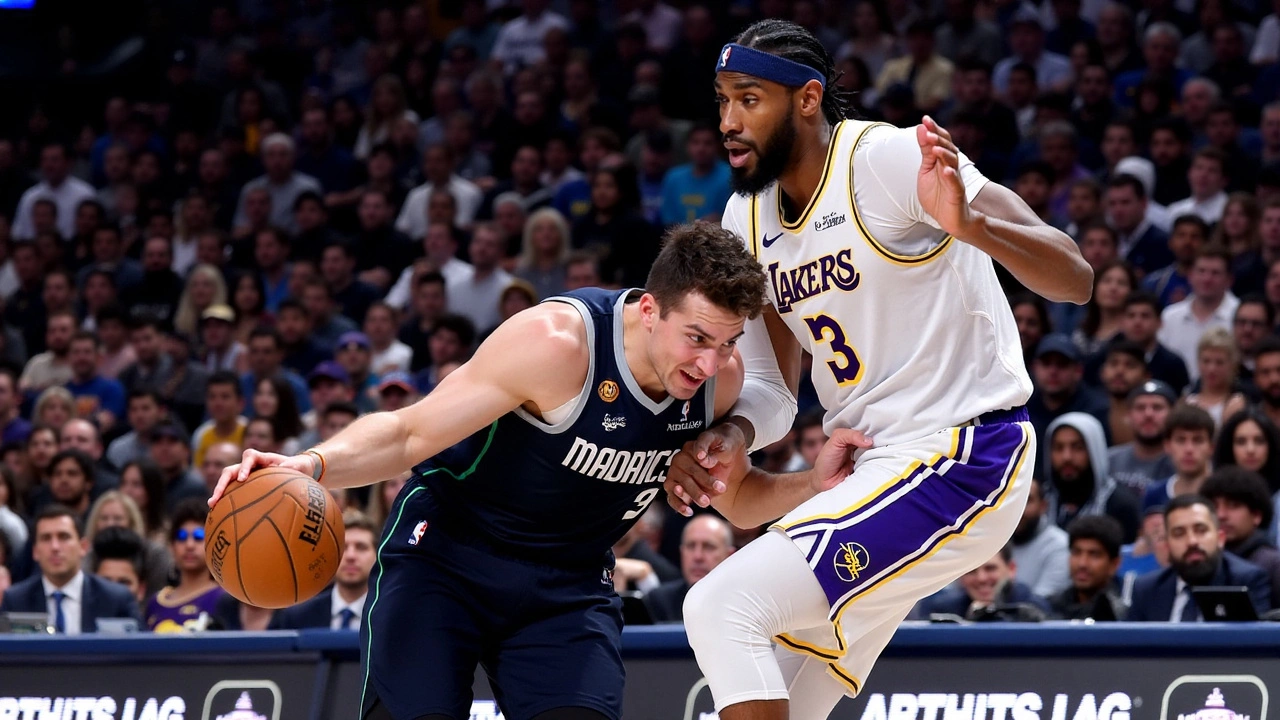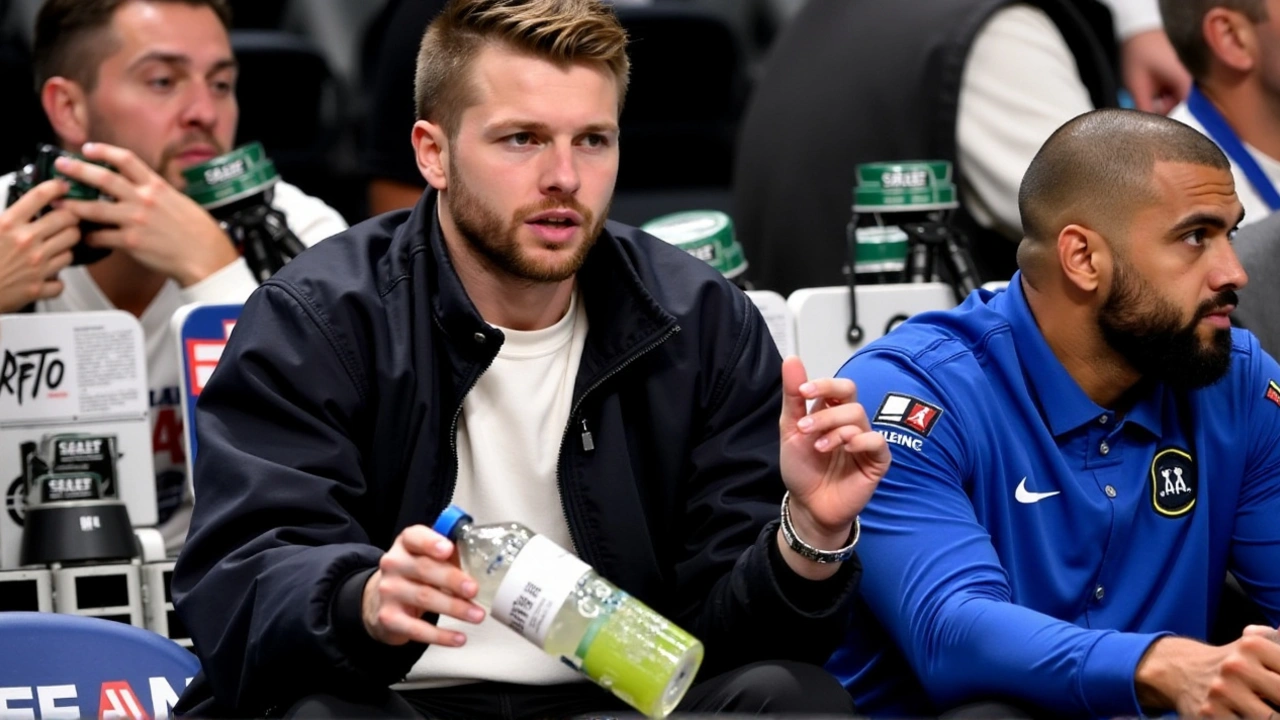Analyzing the Mavericks' Decision to Trade Luka Doncic
The recent decision by the Dallas Mavericks to trade their young superstar Luka Doncic to the Los Angeles Lakers is a move that has sent shockwaves through the basketball community. Known for his exceptional offensive prowess, Doncic has been the cornerstone of the Mavericks’ plans, ever since they acquired him on draft night back in 2018. Last season, Doncic demonstrated why he's considered one of the best in the league by leading the Mavericks to the NBA Finals and posting a career-high average of 33.9 points per game. Fans and analysts alike were left in disbelief as news of the trade broke, as it seemed unlikely that the Mavericks would part ways with such a significant talent.
Doncic's incredible talent on the floor is undeniable. With his combination of size, skill, and basketball IQ, he can seemingly take over games at will, orchestrating the Mavericks' offense with finesse and precision. However, lurking behind those awe-inspiring games was a set of concerns that the Mavericks found troublesome enough to consider a future without him. The spotlight fell sharply on his conditioning and defense, particularly during high-stakes games like the NBA Finals against the Boston Celtics. Critics pointed out his defensive vulnerabilities, underscored by a worryingly high blow-by rate of 44.7%, one of the highest in the league during that span, which contrasted sharply with his offensive exploits.

A Clash Between Future Commitments and Present Needs
Over recent seasons, the Mavericks faced a dilemma balancing their immediate success ambitions with the long-term sustainability of their roster. Doncic's eligibility for another supermax contract extension meant a massive financial commitment that could impact the team's flexibility in the years to come. Additionally, Doncic's inconsistent availability due to injuries, never playing more than 72 games in a regular season, was another point of contention. Currently sidelined by a calf injury, his physical readiness and durability remained under scrutiny, increasing the risk factor for the franchise.
Mavericks GM Nico Harrison's decision to trade Doncic appears to be a preemptive move addressing these looming issues. By opting for a trade, the Mavericks not only address their current concerns but also leverage Doncic's exceptional trade value to potentially reshape their future. In return, the deal brings in Anthony Davis and additional assets, perhaps aiming to re-orient the Mavericks' roster dynamics while trying to stay competitive in the short-term.
How the Lakers Benefit from the Trade
On the other side of this transaction, the Los Angeles Lakers have landed a coup by acquiring a player of Doncic’s caliber. As the Lakers prepare for a transitional phase with LeBron James winding down his illustrious career, securing a marquee talent like Doncic sets the team up for sustained competitiveness in the post-LeBron era. His ability to lead a team and elevate those around him makes him an ideal candidate to carry the Lakers' torch into the next decade. It’s a trade that not only excites Lakers fans but also places them favorably in Western Conference power dynamics.
The inclusion of Anthony Davis in part of the trade may balance the scale, considering his defensive capabilities and experience. Nonetheless, Davis’s injury history echoes some concerns akin to those raised about Doncic. The key difference lies in the potential growth and longevity that Doncic offers due to his age and relatively high ceiling.

The Uncertain Future for Dallas
For the Mavericks, the focus now shifts to how they’ll navigate the challenges ahead. The trade presents with a fresh but uncertain canvas upon which they’ll paint their new era. While they have procured significant assets in the trade, they still lack control over their first-round picks from 2027-2030, a consequence of earlier transactions that sought to maximize their competitive window during Doncic’s tenure. The pressure on the Mavericks front office is immense as they attempt to construct a team that can contend in a fiercely competitive Western Conference.
The decision to move Doncic could signify a philosophical shift for the Mavericks. A move towards prioritizing durability and defense might be on the cards, indicating an attempt to construct a roster with greater balance. After all, flashy offense scores headlines, but seasoned defense wins championships. As with any bold strategic decision, only time will tell if parting ways with a player of Doncic's talent was a visionary decision or one the franchise may come to regret.
Concluding Thoughts on the Blockbuster Trade
The trade of Luka Doncic to the Los Angeles Lakers is illustrative of the ever-evolving landscape of the NBA, where strategic foresight, financial considerations, and on-court production must seamlessly align. For the Mavericks, this trade is both a gamble and an opportunity, a chance to redefine their immediate and long-term future. The Lakers, meanwhile, awaken to the possibilities that adding a transformational talent like Doncic can create. As the basketball world adjusts to this new reality, the legacies of both teams will be shaped by the ripple effects of this blockbuster move.

Michelle Warren
February 2, 2025 AT 17:19The Mavericks just tossed a gold‑plated basketball onto the Lakers’ shelf, but the glitter will wear off faster than Luka’s injury list. Definately, this move will test the patience of every fan who has stuck around for the grind. It’s a classic case of chasing short‑term hype while ignoring the deep‑seated defensive cracks that have haunted Dallas since day one. Sure, the money‑ball optics look slick, but you can’t bake a championship out of a recipe that skips the salt of solid defense. And let’s be real, the Lakers are just swapping one high‑maintenance star for another, hoping the chemistry potion will finally settle. In the end, the trade feels like a flashy billboard with no real foundation underneath.
Christopher Boles
February 11, 2025 AT 22:40Looks like a bold move for both teams!
Crystal Novotny
February 21, 2025 AT 04:20Trading Luka is like swapping a chess queen for a rookie rook. The board changes but the pieces still have their own minds. Some will say it’s a gamble others will call it genius. I think the real story is how the league will rewrite its narrative after this.
Reagan Traphagen
March 2, 2025 AT 10:00This trade is a SMOKE‑AND‑MIRRORS circus orchestrated by owners who don’t give a damn about real competition! They think they can buy loyalty with a contract and a smile, but fans see right through the façade! Every time Dallas pushes out a star, it’s another nail in the coffin of the West’s credibility! The Lakers are just another pawn in a game where the real puppeteers hide behind TV deals! Wake up, league! If we keep rewarding cash‑hungry front offices, the sport will dissolve into a marketplace of broken promises.
mark sweeney
March 11, 2025 AT 15:40Yo, the Mavericks just pulled a fast one on themselves, swapping a future legend for a quick polish on the shelf. It's like trading a fine wine for a soda you know will go flat in a week. Sure, the cap space looks better, but the heart of the team just got ripped out. Theyre betting on the hype wave instead of building something that lasts.
randy mcgrath
March 20, 2025 AT 21:20I get the frustration, but sometimes a bold move can reset a franchise’s direction. Luka’s upside is massive, yet the financial flexibility the Mavs gain could help them add depth. Let’s see if they can weave that new puzzle into a contender.
Frankie Mobley
March 30, 2025 AT 04:00The Lakers get a high‑grade scorer while the Mavs free up cap space for future pieces.
ashli john
April 8, 2025 AT 09:40True but also risky the chemistry might not click instantly the fans will be watching closely
Kim Chase
April 17, 2025 AT 15:20Honestly i think this trade could be a game changer for both sides. The lakers might finally have a younger superstar to build around. Dallas will need to play smarter with the assets they got.
David Werner
April 26, 2025 AT 21:00What they don’t tell you is that the league’s secret committee has been nudging this deal for years. Behind the scenes, TV contracts and market shares dictate the moves, not the players' wishes. So the “game changer” narrative is just a smoke screen for deeper power plays.
Paul KEIL
May 6, 2025 AT 02:40From an analytics standpoint, the asset reallocation aligns with a high‑efficiency paradigm. However, operational volatility remains a concern.
Horace Wormely
May 15, 2025 AT 08:20Just a note: “Mavericks” should be capitalized and “Lakers” needs an apostrophe in “Lakers’”.
christine mae cotejo
May 24, 2025 AT 14:00The trade of Luka Dončić to Los Angeles is nothing short of a seismic shift in the NBA’s power structure, a moment that will be dissected by pundits for seasons to come. Fans who have followed Luka’s meteoric rise from the Baltic courts to the bright lights of Dallas now find themselves grappling with a mix of awe and melancholy, as the player they once cheered on slides under a new banner. On the other side, the Lakers, already laden with veteran talent, now possess a young maestro capable of orchestrating an offense with the elegance of a seasoned conductor. This infusion of youthful brilliance could redefine the team’s identity, transitioning it from a franchise built on the legacies of aging icons to one powered by a fresh, dynamic vision. Yet, the excitement is tempered by the ever‑present shadows of injury risks that have trailed Luka throughout his career, a factor that management cannot afford to ignore. The financial implications are equally monumental; the contract extension potential for Dončić carries a massive cap hit that will force the Lakers to make difficult roster decisions in the coming years. Moreover, the trade signals to the rest of the league that the balance of power is no longer static, prompting other franchises to reconsider their own strategies. Some analysts argue that this could spark a cascade of moves, as teams scramble to either acquire complementary pieces for the new Luka‑led Lakers or to fortify their defenses against a revitalized Western Conference. The cultural impact is also profound, as the global fan base of the Mavericks may feel a sense of betrayal, while the Los Angeles market stands to expand its reach even further. In the locker room, the chemistry dynamics will be tested; integrating a player with such a high usage rate demands adjustments from both veterans and role players alike. Coaches will need to devise schemes that maximize Luka’s playmaking while ensuring that the team’s defensive integrity does not crumble. The media narrative will likely swing between glorifying the boldness of the move and critiquing the potential pitfalls, feeding a never‑ending cycle of hype and skepticism. For the Mavericks, the assets acquired in exchange-be it draft picks, young talent, or expiring contracts-represent a canvas upon which a new era can be painted, provided they navigate the complexities of rebuilding wisely. Ultimately, the success of this blockbuster trade will be measured not just in wins and losses, but in the stories that emerge, the rivalries that intensify, and the legacies that are forged in the fire of competition. Only time will reveal whether this daring gamble reaps the rewards envisioned by the franchise executives or becomes a cautionary tale whispered in future draft rooms. Fans worldwide will watch closely as history unfolds on the hardwood.
Douglas Gnesda
June 2, 2025 AT 19:40The trade reshapes the salary cap landscape, introducing new flex points for future free‑agency maneuvering. From a front‑office perspective, leveraging Luka’s contract to secure high‑value assets is a classic win‑win scenario. Closing the loop, the Lakers now have a versatile scoring engine that can be integrated into their existing schematics.
Abhijit Pimpale
June 11, 2025 AT 18:19In summary, the trade dramatically alters both franchises’ strategic trajectories.